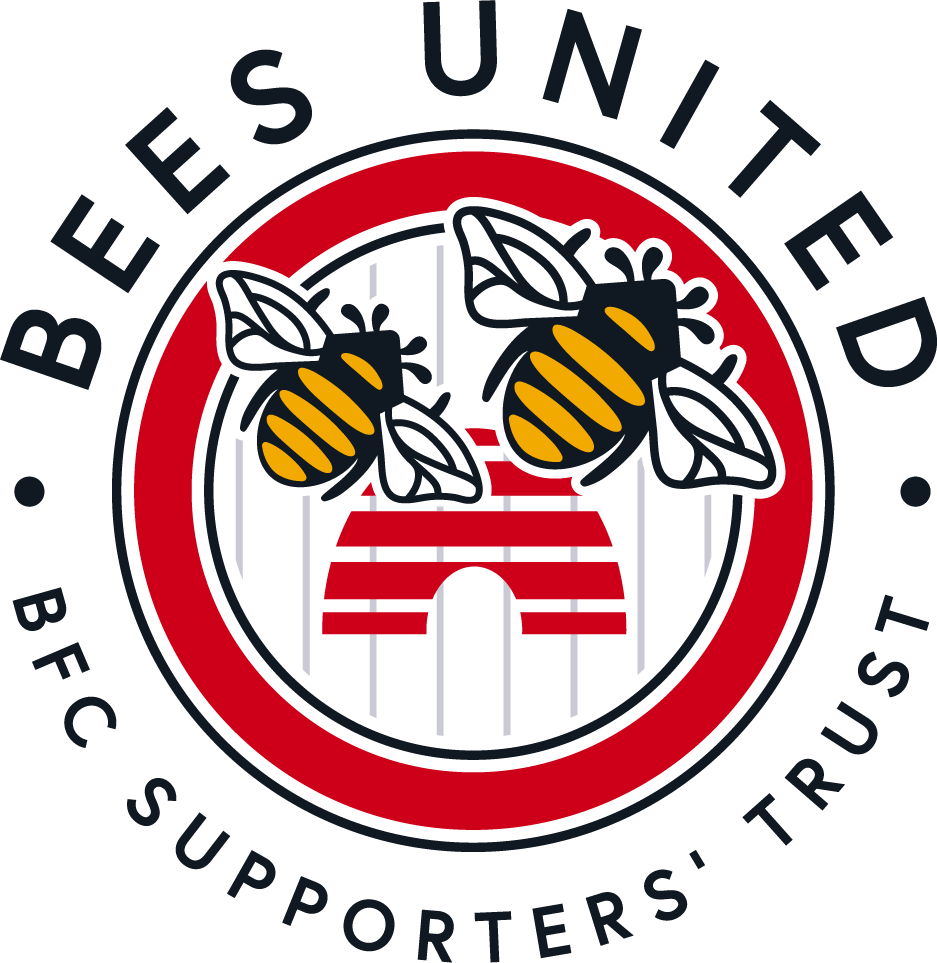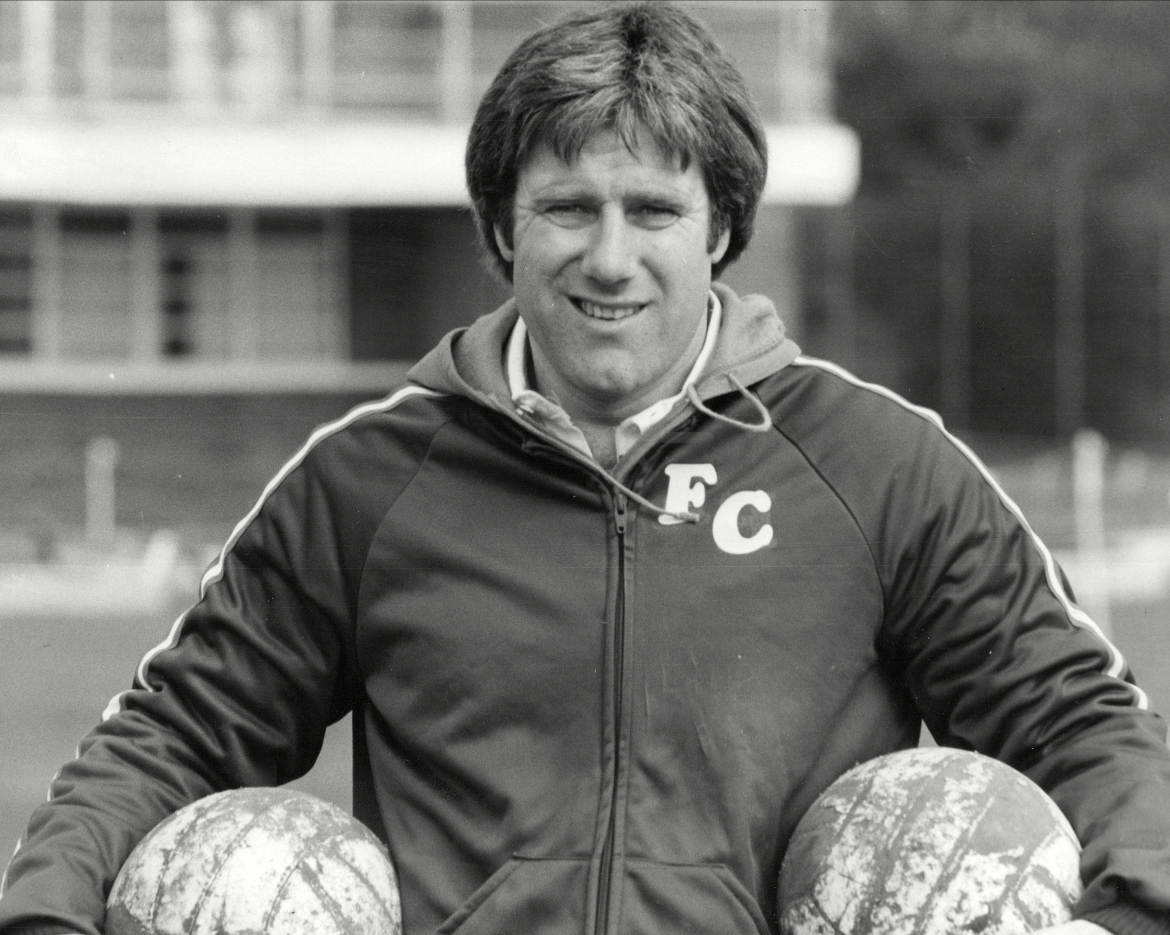All Brentford fans will be deeply saddened by the news of the death on 13th September of former manager Fred Callaghan, at the age of 77.
Four consecutive defeats in a disastrous fortnight in March 1980 meant that the Bees were in free fall. With confidence shot to pieces, they looked more than likely to plummet back down into the bottom division, and the writing was on the wall for popular manager Bill Dodgin.
The final straw was a listless one-nil home defeat to Rotherham marked by Steve Phillips’s remarkable fourth spot kick miss of the season. This was too much for Chairman Dan Tana who gave Bill Dodgin a leave of absence.
Tana accepted that it had been a hard decision for him:
‘The supporters had been demonstrating in the forecourt at Griffin Park prior to his departure and I’d spoken out on behalf of the manager, telling people that he’d been good enough to get us up and I thought he was good enough to keep us up too.
‘Bill and I spoke about the situation and he’d told me not to worry as he had every faith in being able to turn things around.
‘But after the Rotherham game Bill came over to my house and we analysed the whole situation.
‘Bill was no longer convinced that the team would escape the drop, so we came to a mutual decision that he should step aside.
‘I didn’t sack him. Bill was a very good man.’
This was a sad and ignominious end to his spell at the club and simply reinforced the maxim that however successful a manager might be, memories are short when things start to go bad and there is only ever one inevitable outcome.
Fred Callaghan was Tana’s choice to replace Dodgin, who surely deserved better and was certainly a hard act to follow.
Callaghan had recent history at the club and was an obvious and easy choice as the new manager.
He had been a long-serving, dependable and popular fullback for Fulham, who played nearly three hundred games for the Cottagers before a serious back injury forced him into retirement at the end of the 1973/74 season.
His style as both a player and a manager was memorably described by a Fulham fan: ” What he lacked in finesse he made up in shovel loads of panache.Chin jutting out he would steam down the left flank in attack, and in defence he was a no prisoners taken left back.”
After retirement he soon moved into coaching and enjoyed a successful spell with Enfield before he moved to Griffin Park in February 1977 to assist Bill Dodgin with coaching duties.
His initial stay coincided with an outstanding run of results and performances as the team soared up the table and at the end of the campaign, he left to become manager at Woking.
Tana might well say that his decision to replace Dodgin was more than justified as the impetus and influence of the new man in charge revitalised Brentford, who escaped relegation after a fine late season run of results.
Callaghan was a tough taskmaster who soon set out to show who was boss and quickly put his own stamp on things.
It was certainly his way or the byway!
He instigated a mini clear out which saw the departure of firm fan favourites such as Len Bond, Dean Smith, Steve Phillips, John Fraser, Barry Tucker and David Carlton.
He wanted his own men in situ, ideally hungry young players with everything to prove, and, assisted by scout extraordinaire John Griffin, he brought in some of the finest prospects seen at the club for many years.
David Crown, Terry Hurlock and Gary Roberts were all inspired bargain buys from non-league clubs.
Mark Hill and Barry Silkman were less successful purchases but David McKellar proved to be a calm and safe replacement for Len Bond after some eccentric displays from another inexperienced youngster in Paul McCullough who had singularly failed to impress.
Callaghan tightened up the defence and stabilised the club in his first full season before putting together perhaps Brentford’s finest midfield since the Harper, Greenwood, Hill combination when he swapped Crown for Chris Kamara and took a gamble on Stan Bowles who had been seemingly drifting towards oblivion at Leyton Orient.
Bowles sliced opposition defences apart with his precision passes, Kamara was tireless and did his running and covering for him and also had the energy to get into the box to finish off his chances, and Hurlock was “like a caveman carrying a sledgehammer” according to Francis Joseph, the Incredible Hulk, an impassable barrier who could also play the game as well as intimidate.
An unbeatable combination.
The team was beginning to gel although they were more dangerous on the counter attack, with a far better record away from home than at Griffin Park, where they struggled to break teams down.
Callaghan made a costly and catastrophic blunder with the signing of an average centre half in Alan Whitehead for a ridiculous tribunal assessed fee of £78,000 but the Chairman’s and crowd’s frustrations were allayed when his Midas touch returned with the signings of strikers Francis Joseph and Tony Mahoney which appeared to put into place the final pieces of the jigsaw.
Mahoney came from the scrap heap at Fulham and provided the strength, hold up play and aerial ability and Joseph was a potent combination of pure pace, bravery and finishing ability.
The 1982/83 team was so nearly an exceptional one as was evidenced by the totally deserved victory over First Division Swansea in the League Cup.
Callaghan’s squad was lopsided incorporating the best strike force and midfield in the league, unfortunately backed up by one of the worst defences and goalkeeper.
Almost as fast as Joseph, Mahoney and Roberts scored at one end, Messrs Roche, Wilkins and Whitehead threw them in at the other.
Fifty goals were scored at home and forty-nine conceded away – a strange and unusual symmetry, and the soft underbelly coupled with the tragic loss of rejuvenated striker Mahoney with a broken leg, whose crack I can still hear to this day, ensured that only four games were won away from home, and the team finished an insipid and disappointing ninth when a promotion berth surely beckoned given the quality under Callaghan’s control.
A massive opportunity squandered through ill luck and under performance, and Callaghan’s chances of glory had gone.
The decline continued into the following season as players no longer seemed to respond to his approach and the football became ragged and uninspired, with Terry Bullivant a totally inadequate replacement for the retired Stan Bowles and Ian Bolton an even slower centre half than Whitehead.
Perhaps the playing budget had been cut, but his signings were no longer up to the mark.
Our Third Division status was beginning to look under threat, and when the team collapsed spinelessly in the FA Cup at Gillingham, and a three-one lead was squandered in a 12-minute horror show, which saw four goals conceded, the writing was on the wall for Callaghan.
His brusque manner did not help his cause and Chairman Martin Lange fired him in February 1984 after almost four years in the post.
Lange had some misgivings over his decision: “I thought Fred was a good man and a decent manager. He had some faults but was a good football man and a terrific judge of a player and knew the lower leagues well.That was borne out by the calibre of the players he brought in like Terry Hurlock, Gary Roberts and David Crown.
“Fred was a good first manager for me and it took a lot of soul searching when I decided it was time for him to go. In my heart of hearts, I do sometimes look back at that decision and wonder if I should have given him a little bit longer, but his departure was down to my inexperience and I was getting a lot of flack from the fans and took the easy way out.”
Brentford were in decline once again, relegation beckoned and a new saviour was needed to help ensure that, at a minimum, our Third Division status was maintained.
Fred Callaghan’s reign at the club was over.

